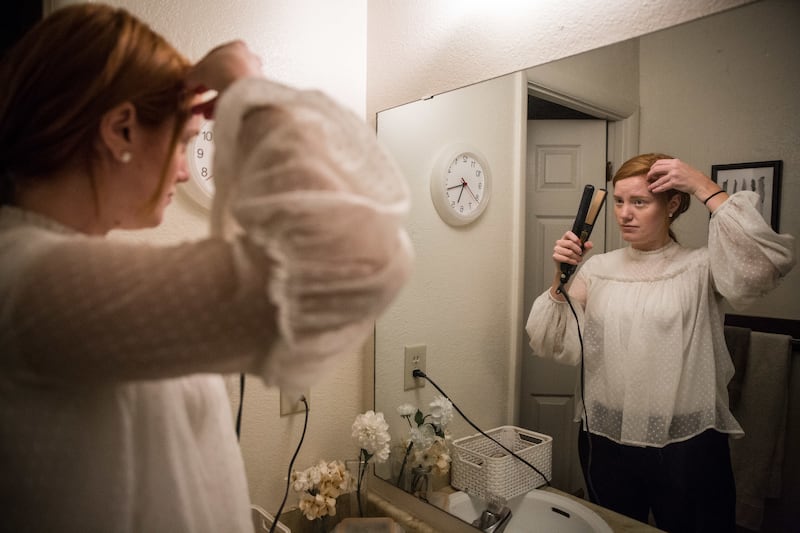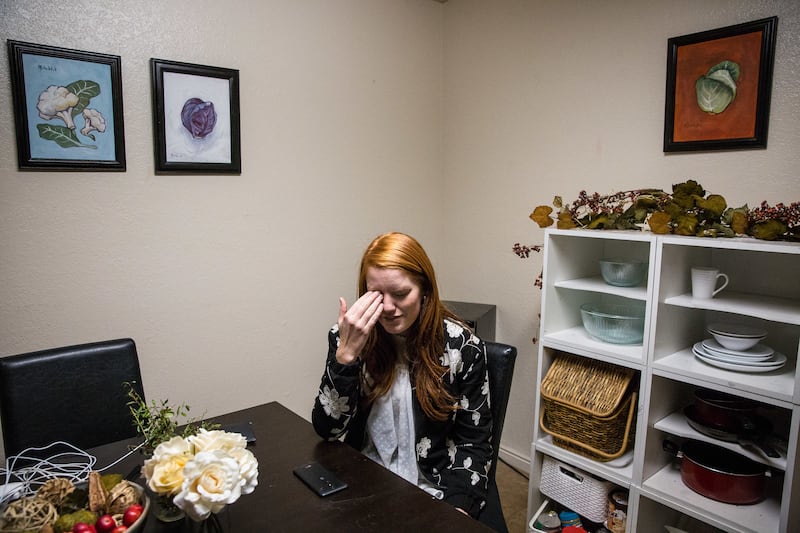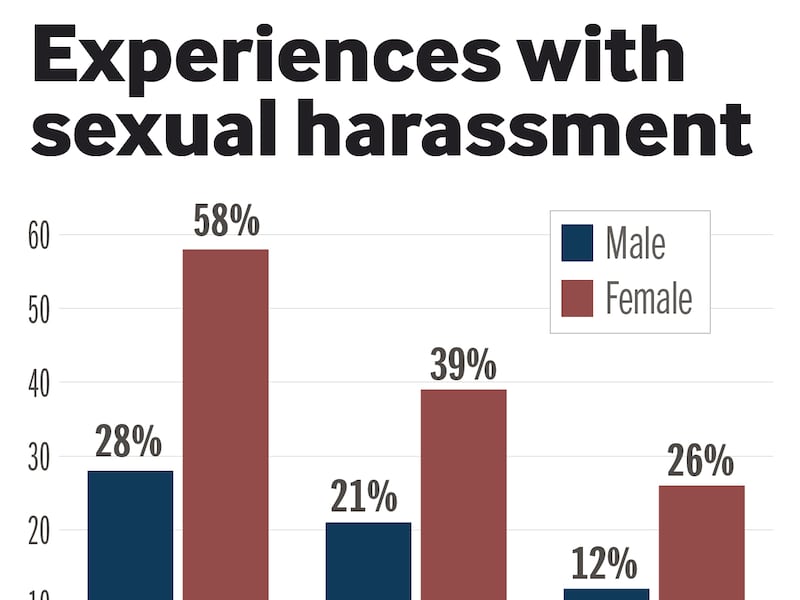Editor's note: Read more stories from the 2018 American Family Survey.
SALT LAKE CITY — Women are more than 10 percentage points more likely than men to believe explicit verbal consent, or saying “yes” out loud, is necessary for sex and intimate touching. Men, on the other hand, are more likely to think non-verbal “implied” consent is good enough.
That’s according to the newly released 2018 American Family Survey that measured male and female attitudes a year after the #MeToo movement exploded onto the national stage and caused all genders to rethink, just what is appropriate behavior?
The survey, a joint project of the Deseret News and the Center for the Study of Elections and Democracy at Brigham Young University, conducted by YouGov, also showed that more women than men say asking someone out, making sexual jokes and other sexual behaviors at work constitute sexual harassment.
For example, only 49 percent of men say asking for sexual favors at work is “always” sexual harassment, compared to 71 percent of women. Attitudes differ the most when it comes to checking someone out. Whereas 66 percent of women think “looking at private parts” at work is always sexual harassment, only 40 percent of men think so.
But why do men and women see things so differently?
The answer may be fear.
Experts interviewed about the results said women are more likely to be physically weaker and in positions of subordination to men, raising the stakes in situations that men might otherwise find amusing or flattering.
“Even if there’s no hint of rape, there’s always the thought in the back of their minds,” said Jathan Janove, an attorney and employee relations specialist based in Portland, Oregon, who works with companies to prevent sexual harassment.
Janove said even though there have been a few occasions in his career when female coworkers made sexual advances toward him, he never felt threatened because he was physically bigger, stronger and had no fear he would be punished professionally if he said no.
“Throw in the element of fear, and it changes the game,” he said.
Randy M. Andrus, a Salt Lake-based lawyer who handles sexual harassment cases, likes to ask this question in focus groups: when was the last time you thought about taking defensive action against rape? For example, checked the backseat of your car before you got in, looked over your shoulder while you walked home late at night, carried pepper spray or made sure the deadbolts on your door are secure?
Most women raise their hands, most men don’t, Andrus said.
“It's a difference in thinking just on that basis.”
Men and women
One thing men and women have in common is a double standard when it comes to who is committing the sexual harassment. Survey data show that the same actions — like commenting on someone’s appearance or putting a hand on their back — are less likely to be perceived as harassment when it is a woman doing it to a man. About six in 10 men and nearly eight in 10 women think that a man asking a woman for sexual favors at work is sexual harassment, but those numbers drop to four in 10 men and a little less than seven in 10 women when it's a woman making the request of a man.
Again, it comes down to the fact that men are less likely to feel threatened by a woman, due to their physical size and social or professional status, experts said. The same is true outside the workplace, in romantic relationships.
Most people believe it’s necessary to get consent before touching someone. For holding hands, kissing and putting an arm around a person, more think implied consent through body language is sufficient. But for intimate touching and sex, clear majorities think verbal consent is necessary.
Even though the majority of men and women are on the same page, there is still a gender disparity when it comes to these more intimate actions. Seventy-three percent of women compared to 61 percent of men think verbal consent is a must before sex. And 63 percent of women compared to 50 percent of men think the verbal affirmative is required for intimate touching.
“The man is more likely to think he’s in the driver’s seat anyway. ‘You’re not going to overpower me. I’m not going to be threatened,’” said Janove. “Therefore, he’s more likely to rationalize that consent is implied.”
Olivia Harris, Executive Director of Speak About It, a non-profit based in Portland, Maine that is dedicated to consent education, said that from a young age, boys are taught that sex is an accomplishment. “It’s rounding the bases, it’s scoring,” she said. And so, they are encouraged to go until they hear stop, rather than ask for consent. Girls on the other hand, are taught to “protect their sex, to be shy, to say no.”
Harris teaches people to seek verbal consent for any kind of touching, even holding hands and kissing.
The reason is body language is often hard to read and culturally specific. For example, someone might interpret a lack of response as a sign that a person is OK with something, when in reality, that person is freezing because they are uncomfortable, said Harris.
“That doesn’t mean it needs to be something formal like, ‘May I please hold your hand?’ ‘Yes, of course, I would like that.’” she said. “It could be, ‘Would it be cool if I held your hand?’ or reaching out and checking in, ‘Is this OK?’”
Some say it “kills the vibe” to ask for permission in the moment, but Parker Wilson, 27, a single adult who lives and works in Lehi, Utah said he typically asks before kissing someone because he’d rather endure an uncomfortable moment than risk hurting or offending someone.

“It is awkward at times, I’m not going to lie,” he said. “But the times where it’s been awkward were when I was wrong, and I was happy I asked because the answer was a no. The times it was a yes, it was great. It was like aw yeah! We both want this, and we’re going for it!”
Becca Wood, a 23-year-old art student at Brigham Young University has had multiple experiences where someone she was dating crossed her personal boundaries without asking, and it ruined the relationship.
“It’s easier to say no when you’re asked than to stop something that is already happening,” she said. “I’ve had many experiences where I had to say no multiple times. Saying no that first time is really hard. And when they keep pushing, every time it gets harder and harder to say no.”
She thinks the onus is on the person taking the action to ask for permission, but she says crossing boundaries without consent is a problem for both genders. “Women also need to be careful and not play the victim,” she said.
Is it harassment… technically?
A minority of both men and women said making sexual jokes at work, putting a hand on a coworker’s back or asking them out to lunch or a drink is always sexual harassment. But at every level, women are more sensitive. When asked about looking at private parts and asking for sexual favors at work however, female disapproval shoots up and male disapproval lags behind.
While Andrus said that, in his experience, asking for sexual favors at work is sexual harassment “close to 100 percent of the time,” those who answered “sometimes” are technically, not wrong.
In order for a sexual harassment claim to stand up in court, the sexual behavior has to be unwanted and pervasive or severe enough to create a hostile environment. So a consensual sexual relationship among coworkers is not against the law.
As evidence of this legalistic understanding, the only behavior the majority of both men and women said was “always” sexual harassment was “persisting unwanted attention.”
But thinking about appropriate workplace behavior in terms of what is and isn’t legal is problematic, according to Janove.
He said that instead of listing behaviors that are not allowed, companies should strive to cultivate a culture of respect and professionalism, where employees are empowered to speak up whenever they feel uncomfortable.
“No amount of training will change the culture,” he said.

Kit Battle, 28, a management consultant in Salt Lake City, said she faced sexual harassment several years ago, but the company she worked for didn’t have a culture that encouraged her to report the inappropriate behavior.
When she mentioned to her male managers at lunch that a supervisor was sending her sexually suggestive text messages, they asked if she had proof. She didn’t, she had deleted the messages out of disgust. And then they told her to let them know if it got worse.
At that point, Battle figured there was nothing she could do, even though she knew the supervisor was harassing not just her, but multiple women in the office. Now, she realizes the incident should have been reported and regrets staying quiet.
As an unintended consequence of the #MeToo movement, Janove fears the gap between men and women is widening because some men have started avoiding interactions with women in the workplace altogether.
Some have adopted the Mike Pence rule which refers to the Vice-President’s past statements that he does not eat alone with a woman or attend an event where alcohol is being served, unless his wife is present.
Battle has felt a “drawing back” from men in the office as she’s become more vocal about advocating for the equal treatment of women. She noticed that company leaders were inviting her male coworkers out to lunch more often than her female coworkers, causing the women to miss out on mentorship opportunities.
“Unless you have to worry about yourself, you have nothing to worry about,” said Janove, noting that women who completely fabricate harassment claims are extremely rare.
Battle’s advice is to remove gender from professional interactions.
Ask yourself, "Would I be talking about this, or complimenting this person on this aspect of themselves (like their appearance) if they were male?” If the answer is no, then question why you feel the need to comment on that thing," Battle said. “It's really about empathy.”























